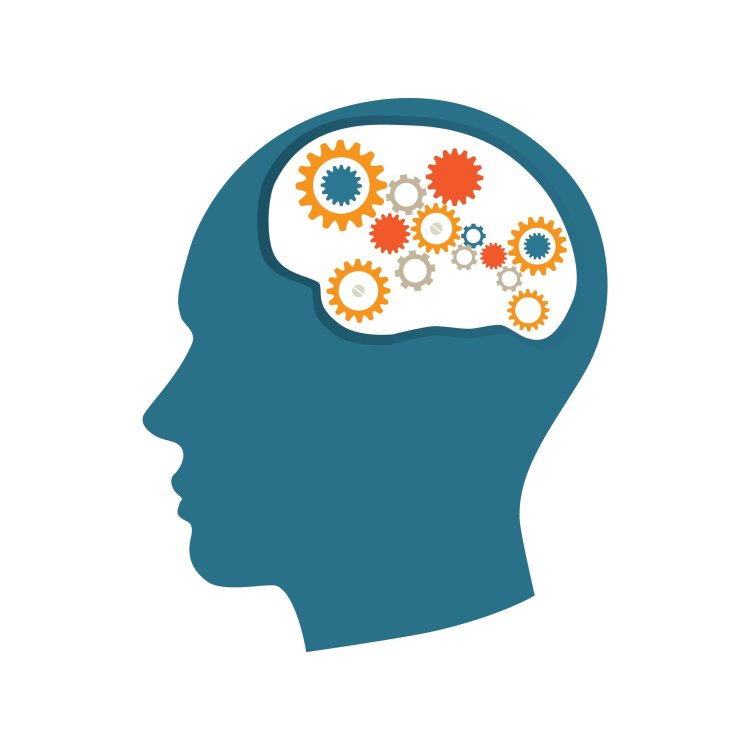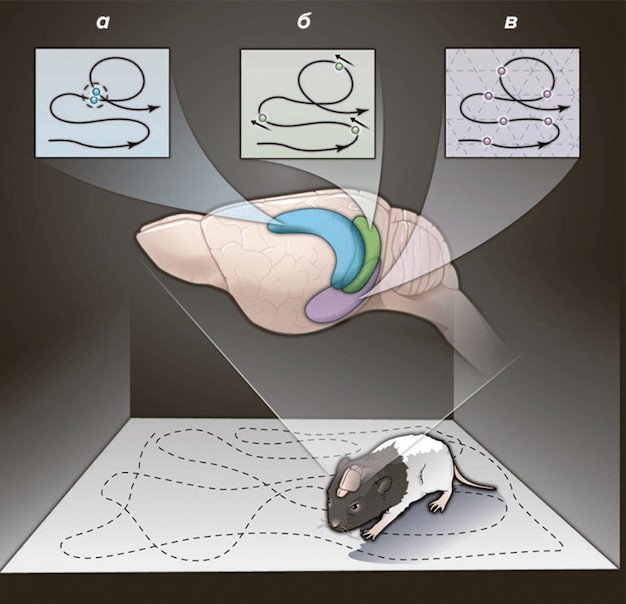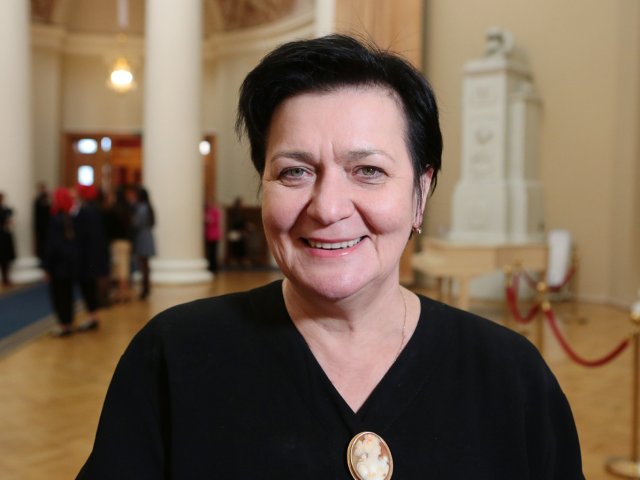How to train your brain by training your body and what exactly you should do from a neurobiological point of view
When we work out, the brain perceives it as stress. But it is already scientifically proven that sports have a positive effect on the body and brain. Thousands of experiments confirm that physical activity is good for memory, intelligence, information processing and even self-control.
To begin talking about the meaning of sports in human life and its effect on the brain, we need to start at the very basics – the evolution. Scientists believe that it gave us long legs, a narrow chest, and large gluteal muscles so that we could run.
This new evolutionary hypothesis was proposed by scientists Daniel Lieberman and Dennis Bramble after their research in 2004. They also noted that these features, presumably related to running, appeared before the brain began to enlarge. [1] In 2014, John O’Keefe and spouses May-Britt and Edvard Moser shared the Nobel Prize in Physiology and Medicine for the discovery of a system of cells in the brain that determines one’s position in space. John O’Keefe discovered the existence of “place cells” located in the hippocampus. These cells are activated when a person is positioned in a certain place. And the Mosers continued O’Keefe’s research, expanded it, and found a new component of the orientation system – “grid cells” in the entorhinal cortex. Thus, a combination of studies has proven the brain’s ability to create “terrain maps.” [2]
Fig. 2. Different cells of the navigation system: “place cells” in the hippocampus (a), “direction cells” in the subiculum (b), “grid cells” in the entorhinal cortex (c).
The committee representatives called this system “internal GPS.” (Fig. 1) It reinforced the view that some intellectual features related to memory evolved to allow our ancestors to memorize and build a terrain map in their heads while running around getting food. After all, those who know where to run survive better than those who don’t.
There are a lot of studies about the effects of movement on the brain. They all come to the same conclusion: physical activity and intelligence are somehow related. Scientists are convinced that sports do affect the brain. And have even stopped to debate on the subject. So, what happens to the brain when a person does sports?
Let’s begin with things that lie on the surface. When a person increases physical activity, the body needs more energy, glucose, and oxygen. It increases heart rate and breathing depth. Which leads to a better blood supply that delivers all the nutrients not only to the muscles, but to the brain, too. It seems pretty obvious, but until a certain point.
There is a carotid artery in the neck. A couple of centimeters below the jawbone – where we usually measure the pulse – it divides into two more arteries. One enriches the brain and is called the internal carotid artery and the other is on the surface of the head, the external one. A team of scientists from Japan conducted an experiment. Their experiment showed that the stronger the aerobic activity is, the higher is the percentage of maximal oxygen consumption by the body and, therefore, the more blood goes into the carotid artery. The brain is only enriched if the percentage of maximal oxygen consumption does not exceed 60%. And if the stress is too high and the body begins to consume about 80% of the maximal oxygen amount – it is the head that begins to be enriched.
So, at a certain stage of stress, our body does everything to prevent the brain from overheating – it stops pumping the heated blood into it. During the process of excessive physical exertion, about as much blood enters it as when we are at rest. [3]
If you want to calculate your level of maximal oxygen consumption, you have to go to a special laboratory. So, it was decided that the degree of aerobic activity can be guided by the heart rate. To find your maximal heart rate, or pulse rate, you have to subtract your age from 220.
If you train so that your heart rate does not exceed 80% of this value, you will continue to supply your brain with blood. Once it is exceeded, there will be no more benefit.
Scientists also believe that regular exercise makes the brain get more oxygen in general. There are two reasons for this. The first one is the heart. Every time you work out, it gets stronger and starts to pump more blood per beat. The second one is the blood vessels. Some experiments on mice show that as you exercise, new blood vessels, which provide the blood supply, grow. [4]
Another important thing about the effects of sports on the brain is neuroplasticity. It is the brain’s ability both to lose neural connections due to some factors and to regain them under the influence of external influences. The more humanity studies this field, the better we understand how the brain works and what we need to do to train it and slow aging.
. While testing on mice, scientists have proven that when they learn something new, their brains grow new neuronal cells. [5] In the case of humans, it is not so easy to investigate. It is known for a fact that when a person learns new skills, the brain grows synapses, and, only presumably, new neuronal cells can appear. But scientists don’t stop there. There are many examples in the reviews of many studies on the effects of physical activity on the brain that prove that gray matter increases due to physical activity. [6]
One of these studies is an experiment with 59 elderly people. Before the experiment began, all of the subjects had a sedentary lifestyle. They were divided into two groups – those who did aerobic exercise within 50% and later 70% of their maximal heart rate; and those who did muscle toning exercises without increasing their heart rate. The study period was six months. The researchers found that aerobic exercise led to an increase in gray matter in the anterior cingulate cortex, the supplementary motor area, the right inferior and superior temporal gyrus – in other words, the entire brain, some parts of which we use daily. Tonic exercises did not lead to such results. [7]
There is a reverse study as well. Another group of people between the ages of 50 and 80, who had been running continuously for almost their entire lives, were asked to stop running for 10 days. The study showed that the effects, even from long periods of training, disappeared quickly. Their brain blood flow decreased even after 10 days. So did the blood supply to the hippocampus that affects memory. [8]
And it is important to say here that physical activity improves memory only if BDNF is synthesized. [9] Unfortunately, scientists have not discovered the reason for its synthesis. It is not yet known why it increases after exercise. Perhaps, it is related to the blood supply, the demand of neuronal cells, or there is some other interesting reason – but the world does not know it so far.
However, based on what has already been discovered, we can say that sports definitely have an effect on the brain. It is not important to exercise at high intensity, but it is important to monitor your heart rate and not reach 80% of your maximum. Regular physical activity has a much greater effect on the brain than a single workout. A minimum of a 15-minute walk a day that increases your heart rate a bit prolongs your lifetime by about three years compared to those who don’t walk for 15 minutes at your age. [10] That being said, the older people are, the more important it is to move. For the rest of their lives. Because as soon as a person stops – all the positive effects for the brain come to an end. Besides, it is most likely that it is the aerobic activity that has such an effect on the brain. It is still unclear and vague about strength training. It is not proven that it increases BDNF or supplies the brain with blood.
Mankind has evolved in an environment where it was necessary to move. It was necessary for survival. The conditions that mankind is in now are, from the evolutionary point of view, wrong. Too much available food that no longer needs to be obtained by running, reduced physical activity, and many other “conveniences” of our world are responsible for many of the Top10 causes of death in the developed world.
Our daily efforts, our will, and the decisions we make affect whether we will have extra 30 years of life or not. Its length is no longer dependent on a predator jumping out of the bush. Now it only depends on our effort and self-control.
P.S.
There was a study that examined how running affects the growth of new neural cells in mice. First, they divided them into two groups – a control group that didn’t run and a group where the mice ran. They lived this way for ten days. After that period, each group was divided into two more – seated in different cells. Some of them were equipped with various interesting objects – mazes, wheels, lanes, tricky drinkers, traps, etc., while others were placed in ordinary boring cages: 4 grates on the sides, one on top and sawdust on the floor.
So, the scientists had 4 groups of animals:
- those that ran and then lived in interesting conditions;
- those that ran and lived in boring conditions;
- those that did not run and lived in interesting conditions;
- and those that did not run and lived in boring conditions.
The scientists’ discovery was that these things worked additively, i.e., in summation: when the mice ran, they got new neural cells and then those neural cells survived particularly well if they were used. For example, for running around in a large and interesting cell. [5]
So, the answer to the question of what you have to do with your body to get smarter is simple: run. Run and surround yourself with an interesting environment.
Sources:
- https://barefootrunning.fas.harvard.edu/Nature2004_EnduranceRunningandtheEvolutionofHomo.pdf
- https://biomolecula.ru/articles/gps-v-nashem-mozge-nobelevskaia-premiia-po-fiziologii-i-meditsine-2014
- https://physoc.onlinelibrary.wiley.com/doi/10.1113/jphysiol.2010.204461
- https://pubmed.ncbi.nlm.nih.gov/19212941/
- https://www.ncbi.nlm.nih.gov/pmc/articles/PMC2858601/
- https://www.ncbi.nlm.nih.gov/pmc/articles/PMC4094356/
- https://pubmed.ncbi.nlm.nih.gov/17167157/
- https://www.ncbi.nlm.nih.gov/pmc/articles/PMC4974847/
- https://onlinelibrary.wiley.com/doi/10.1111/j.1460-9568.2004.03720.x
- https://www.researchgate.net/publication/51576019
- https://page.maple4.ru/inoe/stati/interesnoe/871-kak-sport-vliyaet-na-mozg.html
Photo: captainvector/Photo bank ru.123rf.com























